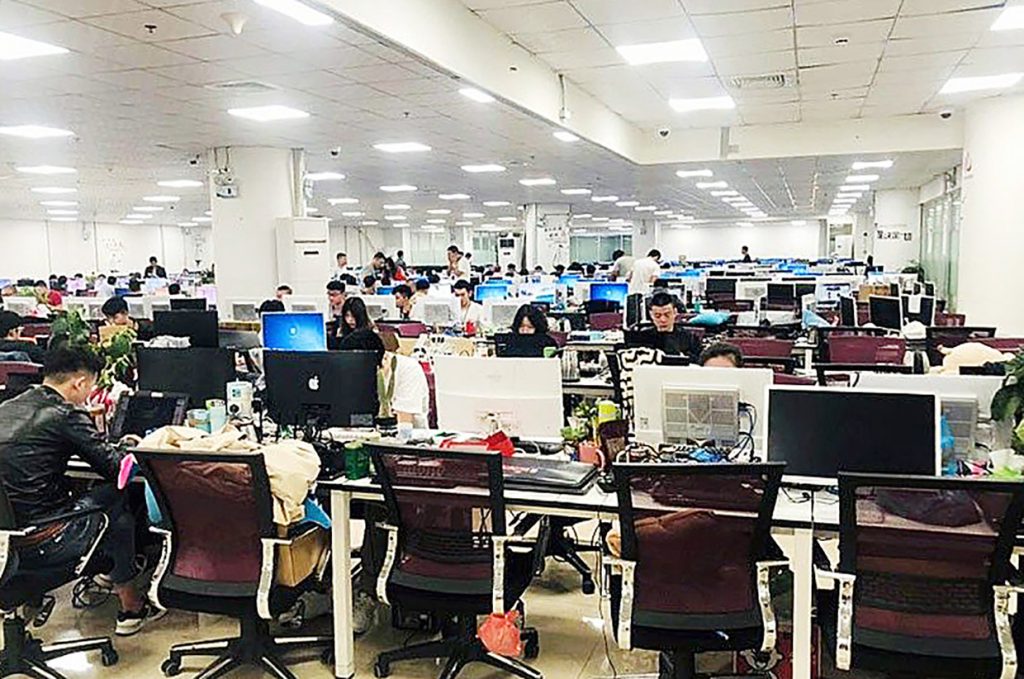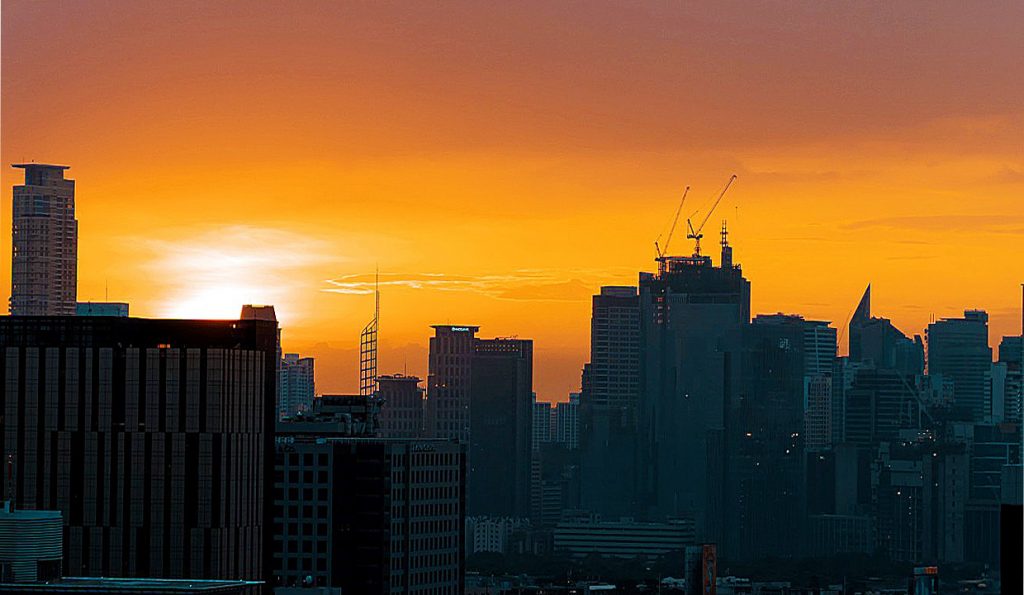Indeed, thousands of square meters of office space are now vacant with no hope of being filled up in the near future due to COVID-19 fears and tax policies viewed as unfavorable by most POGO operators and their service providers.
All their bags are packed, and they’re ready to go. Or to put it more appropriately, some have already left, leaving a trail of empty office buildings, condo units, even used shuttle vans.
Once touted as manna from heaven, at least by office and residential space landlords, the controversial Philippine Offshore Gaming Operators (POGOs) industry is now contracting. Many of these POGOs and their service providers are now leaving the Philippines.
Almost 300,000 square meters or 17 percent of total office space will be vacant by year-end, said property analyst David Leechiu, president and CEO of Leechiu Property Consultants during the relaunch of Property Report PH last week.
The POGO industry occupies 1.7 million sqm of office space, he noted.

EMPTY BUILDINGS
Property Report PH’s research showed that in some areas of Makati City, the situation is so dire that the entire office and condominium buildings are now vacant due to the POGO exodus.
In one of Makati’s new emerging districts, the landlord is even pleading with Chinese real estate brokers to at least maintain the lease contracts for a huge office tower and an entire condominium building once used as dormitory by Chinese POGO workers.
Apparently, the marching order from top management of the giant property firm is to save as much of the existing leases even if the company has to slash lease rates significantly, industry sources said.
A newly constructed office-condominium owned by a wealthy Filipino-Chinese taipan also has no takers.
Prior to the pandemic, the building was being offered for lease at P1,600 per sqm. At the onset of the quarantine, it went down to P1,200 per sqm. As of last week, a big broker was offering the same building at half the price or P650 per sqm, but still no takers.
Several huge edifices along Ayala and Sen. Gil Puyat Avenues, once the most preferred addresses of POGO companies, are also now empty, saved for a few online gaming firms still hanging on. Industry estimates indicate that in just three Makati buildings alone, vacancies reach more than 20,000 sqm. This does not include empty parking spaces that were once in high demand.
PROTEST
Early this week, hundreds of POGO workers staged a lightning rally in a posh building along Makati Avenue. According to their spokesperson, the group is protesting their company’s eviction from the office tower owned by a prominent realtor.
Indeed, thousands of square meters of office space are now vacant with no hope of being filled up in the near future due to COVID-19 fears and tax policies viewed as unfavorable by most POGO operators and their service providers.

The POGO industry’s contraction is largely due to new taxes imposed by the Philippine government, the adverse impact of COVID-19, and China’s continuing assault against the industry, Leechiu said.
Recent changes in POGO taxation under the Bayanihan to Recover as One Act or Bayanihan 2 are deemed by industry analysts as a “POGO killer.” Previously, a five-percent franchise tax was slapped on gross gaming revenues less provisions for payouts. But an inserted provision in Bayanihan 2 changed the tax base by imposing the five-percent franchise tax on gross bets without any provision for payouts to winning players. This, industry analysts said, will make it harder for the already crippled industry.
Leechiu said these factors, coupled with challenges brought about by COVID-19, have already resulted in a vacancy of 200,000 sqm in POGO office space as of October.
COVID-19
At the height of the quarantine, five POGOs and at least 10 of their local service providers closed due to the difficult business environment brought about by COVID-19 and the adverse POGO tax regime.
At least 2,000 Filipinos working as “live dealers,” IT, admin and production staff for online gaming studios were laid off from the closure of five POGOs alone.
Aside from lost jobs, the closures led to vacancies in three preferred POGO offices all located in Makati’s Central Business District.
These POGOs are not just China-based gaming companies. They include firms based in Macau and Europe.
The COVID-19 pandemic exacted a heavy toll on licensed POGOs, which were disallowed from operating during the lockdown. When Metro Manila transitioned to General Community Quarantine (GCQ), POGOs were allowed to operate albeit on 30-percent capacity. Prohibitive lease expenses, high overhead costs and inability to resume full operations due to strict conditions imposed by the Bureau of Internal Revenue (BIR) could also be contributing factors for the closures.
The five shuttered online gaming firms represent roughly 11 percent of the 45 POGO companies currently operating in the country.
Based on data from the Philippine Amusement and Gaming Corporation (PAGCOR), it has about 60 POGO licensees but only 45 are active. There are also more than 200 service providers registered with the gaming regulator.
CEBU MARKET
The Cebu office market was also not spared from the impact of the COVID-19 pandemic and POGO exodus.
It registered higher vacancy levels in the third quarter of the year, with average vacancy rate in Metro Cebu jumping by 18.6 percent.
In a recent webinar, JLL Philippines head of research and consultancy Janlo de los Reyes attributed the rise of office vacancy to pre-termination of contracts by POGOs, especially in Lapu-Lapu and Mandaue areas, where vacancies increased substantially in the third quarter by 47 percent and 26.7 percent, respectively.
In all, Leechiu said both office and residential businesses would be adversely affected if they suddenly lose revenue from POGOs, given the very challenging business environment due to COVID-19. But the bigger hit could be on the residential leasing sector since security deposits are limited.
